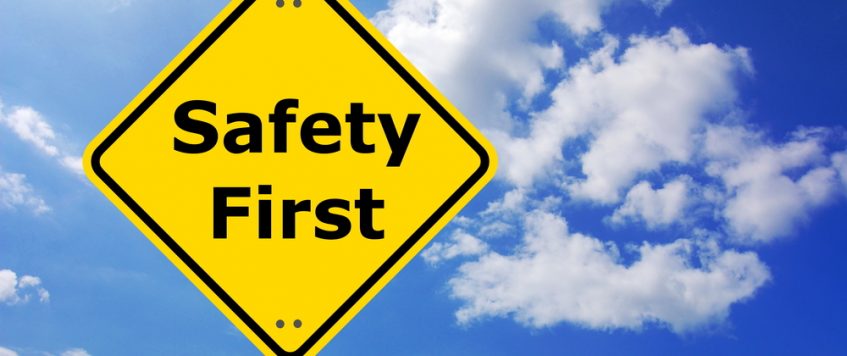-
22
Jan
Travel Safety Tips!
Holidays are not the only time for travel. With Spring near many people are getting ready to pack their bags and head to their dream destination. Here is a list to help with making traveling easier and safer.
Before you go
- Research basic information about your destination
- Leave a copy of your itinerary with a trusted family member or friend
- If you are driving, make sure your vehicle is in good working order
- Get copies of maps of your destination to locate routes, attractions, and essential services
- Consider joining AAA or another travel club for roadside assistance or other travel assistance
International Travel Tips
- Did you know that you need a current, valid passport if you are traveling anywhere outside of the U.S., including Canada and Mexico? If you don’t have a current, valid passport, visit the U.S. State Department’s Web site to apply for or renew your passport.
- In addition to a passport, you may also need a visa to visit some countries. Check with either the U.S. State Department’s Web site or your host country or countries’ tourism or foreign affairs Web sites.
- Plan to drive in another country? Check to see if your driver’s license is valid abroad. You may also need an International Driving Permit or a translation of your U.S. driver’s license. Visit AAA’s IDP web site to apply.
- Find the local U.S. consulate or embassy’s address and phone number.
- Research basic information about the country or countries you plan to visit to help you become familiar with local laws and customs. Your library or travel agent are valuable resources here. Also, check with the U.S. State Department to see if there are any warnings or advisories for special considerations for the country or countries you plan to visit.
- Become familiar with some basic words and phrases in the language of the country or countries you plan to visit.
- Register with the U.S. State Department to make it easier for the U.S. government to help you in an emergency abroad.
- Make photocopies of your passport, airline tickets, visa, Carry one set of copies in a safe place and leave another set of copies at home with a trusted family member or friend.
- Your health and accident insurance may not be valid outside of the U.S. Check with your insurance provider to see if you need additional travel health/accident insurance.
- Some countries have restrictions on things you can bring with you or take home with you.
- There may be restrictions on bringing certain things back to the U.S. with you. Check with U.S. Customs and Border Protection for more details.
Getting Packed
- Travel light.
- If you need any prescription medication, bring enough to last you the duration of your trip. Also, if you wear glasses, bring an extra pair.
- Keep medicines in their original containers. You may also need a letter from your doctor explaining why you need certain medicines.
- Don’t pack or bring any prohibited items, such as weapons, sharp objects, or dangerous substances.
- Don’t bring a lot of cash or credit cards. Instead, bring travelers’ checks, one or two credit cards, and only a small amount of cash.
- Don’t pack or bring valuables, such as a jot of jewelry.
- Make sure your baggage is labeled with your name and phone number, but use a luggage tag. You may also consider using your work address and phone number on your luggage tags.
- Remember the rules for what you can carry on and what needs to be checked when flying. Visit the Transportation Security Administration web site to learn more about these rules.
At the airport and in the air
- Don’t leave your baggage unattended
- Don’t let anyone other than airport staff members handle your luggage
- Don’t accept any packages from strangers
- Report any suspicious activities
- Follow all safety and security rules and instructions
On the road
- Wear your seat belt
- Don’t drink and drive, and don’t ride with anyone who has been drinking
- Make sure that your children are in approved child safety seats
- Don’t drive if you feel drowsy
- Don’t use cell phones or other electronic devices while driving
- Don’t hitch hike, and don’t pick up hitch hikers
- Be aware of road conditions and your surroundings
- Park in well-lit and well-traveled areas
- Keep your car’s doors locked
- Don’t place your baggage or other valuables in a place where criminals can easily see them
- If you are having car trouble, only accept help from police or other authorized personnel
In your hotel
- Find the nearest fire exits, fire alarm, fire extinguisher/hose to your room
- Keep your hotel room door locked at all times
- Ask visitors to meet you in the lobby or other public spaces in your hotel
- Use the hotel safe to store valuables
- Don’t get into an elevator alone with suspicious strangers
- Ask hotel staff about safety and security policies if you are unsure
Out and about
- Pay attention to your surroundings
- Don’t take more cash, travelers’ checks, or credit cards than you need
- Don’t accept rides from strangers
- Avoid large crowds, demonstrations, or public confrontations
- Keep a low profile
- Don’t have too much alcohol to drink
- Stay in well-lit and well-traveled places
- Don’t “flash” your cash or other valuables
- Don’t discuss travel plans with strangers
- Find the location of the nearest police station, hospital, and other safe places .
- Report any suspicious activities to the police
- If you are robbed, don’t resist
Source: http://www.bestwestern.com/travel-planning/tips/travel-safety.asp
